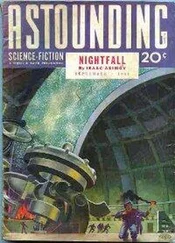“I wish I’d seen him from the window,” Sonovia moaned. “I can’t understand why I didn’t persist. It’s not like me.”
It was coincidence that Jeffrey Leach and Jock Lewis both had twenty-year-old cars, shared a pair of initials, had both once lived in Queen’s Park, but no more than coincidence. Jock had disappeared out of Minty’s life almost a year ago while Jeffrey Leach wasn’t killed till April. He wasn’t going to mention it to the DI, who’d only think he was getting above himself. Besides, Minty was a friend .
But she was getting more and more peculiar. It was only the other day Sonovia had said to him that if you didn’t know she was on her own you’d think she was surrounded by crowds of people all the time. Invisible people, that is. You could never hear much through the walls, these old houses were well built, whatever they said about the neighborhood, but she’d heard Minty shouting to go away and leave her alone and only the other day she’d been sitting in the garden when Minty had come out to hang up washing and was talking nineteen to the dozen to some old woman and a man she called Wilfred, and to Winnie Knox, who’d been dead three years. It made Sonovia’s blood run cold to hear her.
The police couldn’t make up their minds whether Leach had dumped the car himself when Fiona told him to use hers or whether his killer had done so. Only his fingerprints were on the inside of it, his and those of an unknown person, probably a woman.
Six weeks had passed since Sonovia first asked the builder for an estimate for Minty’s shower. When he didn’t come she complained and he said he’d been ill with “summer flu.” Sonovia wondered if it was a good idea for him to come at all, if any stranger should be allowed at number 39 when Minty was so odd, talking to people who weren’t there, always looking over her shoulder and shivering.
“She’s harmless,” Laf said, on his way next door with the Sunday paper.
“I know that, my deah. It’s not him I’m thinking about, it’s her. I mean, people getting the wrong impression. It’s enough to give the whole street a bad name.”
“You get that shower done for her. It’ll be a tonic. Lift her out of her depression.”
Laf went next door. Minty still had her latex gloves on, she’d been scrubbing the kitchen floor. On an impulse, Laf asked her if she’d come to the cinema with him and Sonovia the next day. In her characteristic way she said she didn’t mind and could she make him a cup of tea? Not once while he was in there did she seem to hear voices or talk to invisible people or look over her shoulder.
They’d gone. It was because she’d done it. She’d been up to Fortune Green that morning with a bunch of flowers, a nice clean bowl that Auntie’d once used for her Christmas puddings, and water in a fruit juice bottle with a plastic screw top. The bottle had been washed out when she’d drunk the juice and put in Dettol with the hot water to make sure it was really clean. It was easy getting to West Hampstead on the train from Kensal Rise. She’d bought the flowers from outside the cemetery in Fortune Green Road.
Why hadn’t his brother put Jock’s ashes in there? Come to that, why West Hampstead at all? So far as she knew, Jock had never lived there, never even been there. The answer must be that the brother did. The flowers she’d bought were Michaelmas daisies and goldenrod, there wasn’t so much of a selection at this time of the year. It wouldn’t be long before the leaves began to fall. She could feel a nip in the air. On the green she stood under a tree and looked about her, wondering where the ashes had fallen. She squatted down and examined the ground, not actually touching it because that would have dirtied her hands, but just peering about her, searching. A woman passing with a dog stopped and asked her if she’d lost something. Minty shook her head fiercely, though it was true, she had lost something, or someone , and she was looking for what was left of him.
Her scrutiny eventually rewarded her with the sight of something pale sprinkled over a patch of bare earth where for some reason the grass didn’t grow. A cigarette had been stubbed out close by. This she kicked out of the way with the toe of her shoe. She put the bowl precisely where the grayish powder lay most thickly, poured in the water, and arranged the flowers. They looked very nice. She could almost fancy she heard his voice say, “Thanks, Polo. You’re a good girl.” It was only her imagination, the result of her thinking what he might say, not his actual voice speaking. She put the bottle along with the wrapping from the flowers into a litter bin and walked back down the hill to West Hampstead station.
Matthew was opening his letters. His post increased almost daily. Fifteen had come that morning, some sent on by BBC Television, others from the agent he’d been obliged to engage. A lot of them were straightforward fan letters, some included questions about health and eating habits their writers expected him to answer, some-a very few-were abusive, asking him who he thought cared about a man too stupid to eat wholesome food when half the world was starving or wanting to know where he found “the obscene freaks” who appeared on his program. There was an invitation from the Eating Disorders Association asking him to become one of their patrons. He answered all his letters except the abusive ones and these he threw away quickly lest their contents prey on his mind.
Today there were no nasty letters. He almost wished there had been, for a few insults might have temporarily taken his mind off Michelle’s health or its reverse. Twice he typed in her name instead of that of the recipient and once, instead of cancel -this to a man wanting to know if he should keep going his subscription to a slimmer’s magazine-he wrote cancer . Before pressing the back space, he looked at the word and shuddered. Using the euphemism he despised when others uttered it, he asked himself what he’d do “if anything happened” to her. The bald term he couldn’t use, not even in his thoughts. And as he excised the letter which made all the difference, the r that changed an innocuous word into one of foreboding and dread, he spoke her name in a whisper and then more loudly. “Michelle,” he said. “Michelle.”
She answered him. She’d just that moment let herself in by the front door. “I’m here, darling.”
Her face was flushed and she looked excited. “I’ve something to tell you. It’s good news-can’t you tell? Well, I think you’ll say it’s good. I did the test at home, I did it a month ago but I still didn’t believe. I thought my hormones were all confused, I thought maybe it didn’t work on someone of my age, but the doctor says yes and I’m fine. I should be fine, there’s no reason why not…”
He’d gone as white as in the worst days of his starvation. “What are you saying?”
She stood in front of him and he got to his feet. He put out his arms and she moved slowly into them. “Matthew, he or she will be born in March. You are pleased, aren’t you? You are glad?”
He held her and kissed her. “When I can truly believe it, this will be the happiest day of my life.”
THE CROWD OF people were invisible but they were there in force. They thronged through her head, their voices audible as soon as she was alone and sometimes when she wasn’t. Jock wasn’t there. Minty hadn’t heard him since she put those flowers on his ashes. The last time was when he came walking down the stairs, but she heard his voice, clearer and louder than the others. These were people she knew and people she had never met or even heard of. Not Auntie, never her, and not Mrs. Lewis anymore, but Bert, who’d married Auntie, and Jock’s brother’s wife, Auntie’s sisters, Edna and Kathleen, and their husbands, and more whose names she didn’t know. Yet.
Читать дальше











